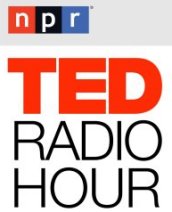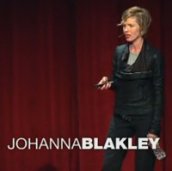A few years ago I noticed a bunch of hashtags appearing in the “Trending Topics” section of Twitter that I just couldn’t make heads or tails of. Each one I clicked on revealed a sea of black faces and I thought, Oh! This is some kind of in-joke in the African American community. When I could figure out what the tweets were about (and often I couldn’t), they were often really funny, sometimes poking fun at black celebrities or taking white people to task for their ignorance of black culture and the black experience. There were also a lot of provocative topics such as #thingsblackpeopledo, which often played with sensitive racial stereotypes (think watermelon, unemployment, etc.) sometimes inverting them or re-invoking them in clever and surprising ways.
This development was really exciting to me because I believe that one of the huge social and political benefits of social media networks is that diasporic communities – dispersed groups that have shared interests – can cheaply and easily find one another, exchange ideas, build community and work together to accomplish shared goals.
Fast forward to 2013: we had just launched the new Media Impact Project at the Norman Lear Center and I was looking for a way to collaborate with the Annenberg Innovation Lab, a group at USC that had been publishing some very interesting research on Twitter. I was thrilled when Kevin Driscoll, a PhD student in the Lab, told me that he was hoping to drum up some interest in researching Black Twitter. We had both noticed that academic researchers hadn’t really grappled with the topic yet, even though the phrase was becoming more common in news media after Black Twitter was given credit for focusing media attention on the Trayvon Martin and Jordan Davis cases.
We were also a bit surprised that academics didn’t seem to be responding to studies demonstrating that African Americans were seriously embracing Twitter. A research team at Northwestern found that black college students were over-represented on Twitter and Pew found that an astounding 28% of African Americans use Twitter with 13% using it on a daily basis. Just to give you some context, only 12% of whites are on Twitter and only 2% of all online adults use Twitter in a typical day.
Whoa.
So we put a great team together very quickly, including USC Annenberg professor Francois Bar, who has done some fascinating work on political sentiment on Twitter, and PhD students Alex Leavitt and Dayna Chatman, an active participant in Black Twitter. But we immediately struggled with our research approach: if we wanted to learn about the Black Twitter community – the basic who, what, where, when, why and how of this online phenomenon – how on earth we were going to go about it? It’s rare that people use the #blacktwitter hashtag to opt in to that ongoing conversation, and there wasn’t an obvious list of sanctioned hashtags that we could follow since those conversations tended to be driven by current events. Nor could we use any standard Twitter metadata, like geographic locations or demographics to isolate this community and study it. (Just in case it wasn’t obvious, not all black people are “members” of Black Twitter and not all participants in Black Twitter are black.)
But we did know that the TV show Scandal – Shonda Rhime’s outrageously over-the-top political melodrama starring Kerry Washington – was a big hit in the Black Twitter community and that it had a reputation for being the most live-tweeted TV show on the air.
The operative word for us was live. That meant that U.S. members of our amorphous Black Twitter community were tuning in, in real-time (in three time-zones, of course) once a week to communicate with one another about the show and potentially anything else that might be on their minds.
Here’s an excerpt from our white paper describing what we decided to do:
From October 3 to December 12, 2013, we tracked the activity of any user tweeting about Scandal, and logged their Twitter conversations and user metadata. With this collection as a starting point, we have begun to map out the relationships among users who “livetweet” Scandal in an effort to identify subgroups of users that interact with one another outside of their shared interest in the TV show. From there, we hope to identify particular cliques of individuals that identify as part of Black Twitter to further explore their engagement with the show and each other on Twitter as well as their offline participation more generally in black culture and politics.
Of course we weren’t simply interested in how this audience was responding to a TV show (though that response has been absolutely fascinating — that’s a subject for another blog); the real target population here wasn’t viewers of Scandal, it was participants in Black Twitter. We were treating the live broadcast of that show as bait for our real quarry. And the bigger goal for the Media Impact Project was to develop a technical toolkit and a repeatable methodology that would allow any researcher to better understand how traditional and new media platforms can be used for community political engagement and how that engagement can affect public discourse and news cycles.
Too many social media research projects focus on one platform, effectively ignoring the cross-platform nature of media engagement. This project allows us to study how stories told in traditional media can not only ignite social media conversation but also trigger the appearance of an entire community looking to re-connect, on a weekly basis, around a cultural touchstone.
Scandal is an especially juicy example of a show that pointedly engages in hot-button political topics and actively encourages fans to engage in conversation about them. Several of the members of the show’s cast and writing staff (including Rhimes and Washington) live-tweet the episodes, and the promotion of the show is often tied to the vibrant Twitter experience that fans can have if they watch the show in real time (which advertisers LOVE). After the penultimate episode of season three last week, the teaser for next week was: Watch live Thursday, or hate yourself Friday.
Stay tuned for more research findings from this project. And be sure to tune into the much anticipated season finale tonight. Our team will gather to monitor in real time the live-tweeting of the East Coast broadcast, 7pm-8pm PDT. If you get hooked, don’t worry about waiting until next Fall to re-join the conversation. Hard-core Scandal live-tweeters have already set up a summer schedule!
















Leave a comment